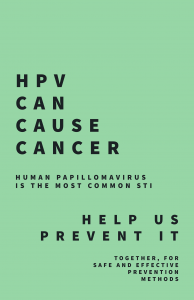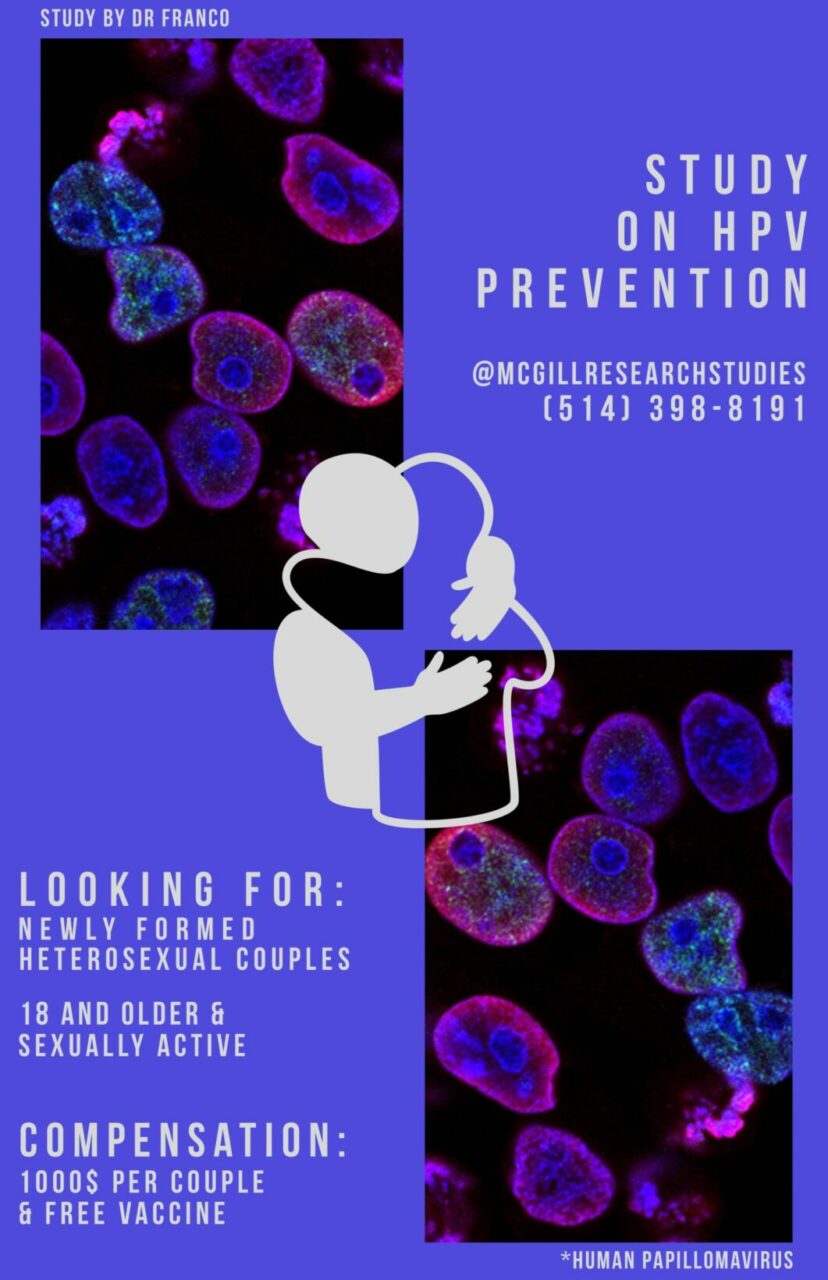 The ongoing TRAP-HPV (Transmission Reduction and Prevention with HPV vaccination) study aims to determine the efficacy of the Human papillomavirus (HPV) vaccine Gardasil 9 in reducing transmission of HPV infection in sexual partners of vaccinated individuals.
The ongoing TRAP-HPV (Transmission Reduction and Prevention with HPV vaccination) study aims to determine the efficacy of the Human papillomavirus (HPV) vaccine Gardasil 9 in reducing transmission of HPV infection in sexual partners of vaccinated individuals.
Although most HPV infections are transient and can be cleared naturally, HPV is the most common sexually transmitted infection among sexually active men and women, and certain persistent infections can progress to cancer, most notably cervical and anal cancers. “Inhibiting HPV infection in young women would have a great impact on cervical cancer prevention for these women later in their lives,” notes Dr. Eduardo Franco, Chair of the Gerald Bronfman Department of Oncology at McGill’s Faculty of Medicine and Health Sciences and the study’s lead. “The same logic applies to other HPV-associated cancers. Vaccines against certain HPV types were shown to be effective in both men and women. Although the vaccine does not help clear existing infections, its effect in blocking transmission of HPV to sexual partners of vaccinated individuals remains unknown.”
The TRAP-HPV study is a collaboration between researchers at McGill and the Centre hospitalier de l’Université de Montréal. “Our goal is to determine whether vaccination of individuals against HPV infection would effectively protect their sexual partners from HPV infection as well,” explains Dr. Franco, who is also Director of the Division of Cancer Epidemiology at McGill. “Acquiring more information as to how the vaccine can be used could positively impact global HPV vaccination policies and thus HPV-associated cancer prevention strategies.”
Recruitment for the study, which consists of heterosexual couples with partners  between the ages of 18 and 45, targets students from Montreal universities and CEGEPs. At the moment, the researchers require the recruitment of another 80 couples to be able to complete the study, an effort that has been made more challenging these days. “Recruitment of new participants has slowed during the pandemic,” says Dr. Franco. “We need help from the McGill community to complete recruitment for TRAP-HPV!”
between the ages of 18 and 45, targets students from Montreal universities and CEGEPs. At the moment, the researchers require the recruitment of another 80 couples to be able to complete the study, an effort that has been made more challenging these days. “Recruitment of new participants has slowed during the pandemic,” says Dr. Franco. “We need help from the McGill community to complete recruitment for TRAP-HPV!”
Although most of the research team is currently working from home, they remain active in their research and hold weekly team meetings via Zoom. “We are lucky to have a committed team that not only continues to be productive and successful, but also keeps themselves and others safe,” notes Dr. Franco.
While recruitment for the study came to a complete halt at the beginning of the pandemic, when in-person clinical research activities were cleared to return, the team resumed recruitment, adopting measures based on the McGill University Health Centre’s COVID-19 clinical protocol, approved by McGill, to ensure the safety of participants.
“Prior to a clinic visit, we screen participants via a Google survey for COVID-19 signs and symptoms the day prior to their scheduled visit,” says Dr. Mariam El-Zein, Associate Director of Research at the Division of Cancer Epidemiology at McGill, and the TRAP-HPV Study Supervisor. “When they arrive for their appointment, we screen them again in person. Our research nurse is adhering to health and safety recommendations: wearing the necessary personal protective equipment and enhancing housekeeping measures. We also provide surgical masks, soap, and hand sanitizer onsite. In order to provide participants their compensation, we now use touchless Interac payment. Reimbursement is also offered for Uber and taxi rides to our clinics, as we recognize the risk of exposure to COVID-19 for our participants who use public transportation.”
To learn more about the study and how you can participate, click here , call 514-398-8191, or email traphpv@mcgill.ca.

January 26, 2021
